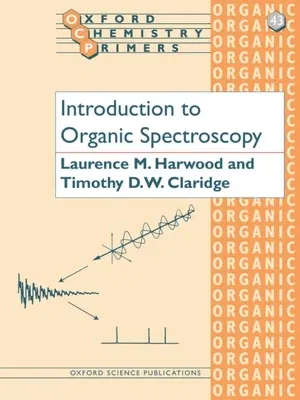Laurence M Harwood
(Author)Introduction to Organic SpectroscopyPaperback, 5 December 1996

Temporarily out of stock
Free Delivery
Cash on Delivery
15 Days
Free Returns
Secure Checkout

Part of Series
Oxford Chemistry Primers
Print Length
96 pages
Language
English
Publisher
Oxford University Press, USA
Date Published
5 Dec 1996
ISBN-10
0198557558
ISBN-13
9780198557555
Description
Product Details
Book Format:
Paperback
Country of Origin:
GB
Date Published:
5 December 1996
Dimensions:
24.51 x
19 x
0.74 cm
ISBN-10:
0198557558
ISBN-13:
9780198557555
Language:
English
Location:
Oxford, England
Pages:
96
Publisher:
Series:
Weight:
181.44 gm